- Home
- Conn Iggulden
Quantum of Tweed: The Man With the Nissan Micra Page 2
Quantum of Tweed: The Man With the Nissan Micra Read online
Page 2
‘Very well. I’ll put a couple of full clips in the envelope.’
Albert was not exactly what you would call a ladies’ man. The great flames of youthful passion had passed him by, with the exception of one long summer in his late thirties when he dallied with an attractive widow and had even thought about asking her to marry him. The fires of his heart had turned to ash when he discovered she was also running around with the local butcher. Rather than compete with a man who could woo with sausages, Albert had sent her a dignified letter and ended it. Those golden days were still among his favourite memories, but as the sum total of a man’s experiences with the opposite sex, it was somewhat lacking.
Perhaps as a result, the group of teenage girls hanging around the entrance to Eastcote station at midnight left him slightly flustered. As he waited for them to leave, he checked his watch at intervals. They seemed in no hurry and all he could do was stand near the crucial bin and read a newspaper.
He may have had an air of innocence, despite his deadly new profession. It takes time to grow into a hard-faced assassin, even for one who had begun so promisingly. Albert’s wide-eyed nervousness may have caught the interest of the girls in the way that a mouse will attract a pack of feline predators; it is hard to say. It may have been the amount of alcohol the girls had consumed or the fact that they had a vague idea of asking a stranger to buy more. Either way, they surrounded him like lions on a wobbly zebra.
They were loud when they screeched with laughter. They were also loud when they whispered. Albert could only cringe and stammer answers as they fired questions at him. When he dropped his newspaper and bent down to pick it up, one of them patted him on the bottom and then was almost sick laughing at his horrified expression.
‘You a dirty old man, then?’ another asked, grinning.
Albert tried to reply, but to say he was out of his depth is to imply that he had some concept of depth. He was not even in the pool.
‘He’s got a long coat. I think he is a dirty old man.’
Albert knew about blushes, of course. The lady he had once adored had read romantic novels by the yard, though as he reflected later and with justifiable bitterness, not a single one had a butcher as its hero. She had even read a few choice passages aloud to him, perhaps hoping that they would inspire Albert Rossi to similar efforts. Blushes were mentioned every second or third page in those.
He was not as familiar with the wave of heat and embarrassment that seemed to begin at his shoes and work up to the stiff collar of his shirt. He suspected small Eskimo children could warm themselves on him at that moment. In a sort of daze, he imagined they would bless him for saving them from a hard winter and only roll him out on the coldest of days. He could almost see the stern Eskimo mother wagging a finger at the little ones and telling them not to waste their Albert when it was a mere forty degrees below zero. The mind is a strange thing, and it is worth remembering that Albert was under a lot of stress. With an effort, he shook his head clear of Eskimos.
‘I’m just waiting for someone,’ he said.
The first girl was perhaps sixteen. She was dressed in a way that was clearly meant to be appealing. There was a lot of flesh spilling out of her top. Most of it jiggled when she laughed and he could hardly point out the chip that had fallen into her cleavage without revealing that he had noticed her cleavage. He decided against that.
‘My mum warned me about men like you,’ she said cheerfully. ‘All they want is sex.’
Albert gaped at her, but he found nerve enough to reply.
‘I’d be satisfied with a bit of peace and quiet,’ he said firmly. ‘It is after midnight.’
‘Ooh, he wants you to satisfy him, Sal!’ her friend hooted. ‘Dirty old man!’
A distant rumble under his feet saved him from worse. One of the girls yelled ‘Traaaain!’ and the whole painted pack scooted into the station. Albert watched them go with a feeling of relief mingled with regret. He had not talked to a female for a long time. Perhaps if he went to a casino in his new role as assassin-for-hire he would meet some Russian beauty at the roulette table. He shook his head. Unlikely, even for a fantasy.
Now that the street was quiet, he sidled over to the bin at last. Under the half-eaten kebabs and free newspapers was a thick brown envelope, almost a package. It looked bulkier than the one for Peter Schenk, but he didn’t want to open it there. He hurried down Field End Road back to his flat, tucking the envelope safely under the gaberdine coat he was wearing for just that purpose. A dirty old man would not have the style to carry off gaberdine wool, he told himself. It would more likely be a blend or, he shuddered at the thought, textured polyester.
Standing in the doorway of the kebab shop by the station, holding a large doner with salad, special sauce and a bright green chilli pepper, Police Constable George Thompson watched him go. Despite his profession, PC Thompson was not suspicious by nature. He had been amused at first to see a group of young girls harass a rather prim-looking man over by the station. Yet there was something strange about the man’s reactions as he hovered around the bin on the crest of the hill. The police officer had been chewing slowly and deliberately on his doner with only vague interest when he saw Albert Rossi search the bin. That interest had sharpened considerably when he saw the man come up with a thick envelope and go hurrying off down the road with it.
PC Thompson had very blue eyes, weary after a long shift. If Albert had been looking into them, he would have seen them go cold and hard, much like the final piece of the kebab. The policeman was a believer in instinct and he chose to spend his last hour before bed walking slowly along Field End Road after the unsuspecting Albert Rossi, then noting the door number of his little flat on the balcony above the shops.
Chapter Four
Four days later, Albert responded to a knock at the door of his flat. His bed was covered with plans and diagrams, as well as the Collins Encyclopedia, volume four: ‘De–Es’. He opened the door cheerfully with a piece of buttered toast in his mouth and a cup of tea in his hand. When he saw that his visitor was a uniformed policeman, he choked on the toast so suddenly and violently that PC Thompson seriously considered calling for an ambulance.
After a good ten minutes of pounding Albert Rossi on his back and then supporting his red-faced frame, PC Thompson found himself in a small kitchen, settling the man into a chair and fetching him a glass of water, which Albert sipped while they waited for his eyes to stop bulging.
‘Sorry about that,’ Albert wheezed. ‘Went down the wrong way.’
‘Not a problem, sir. Are we feeling better now?’
‘I am, officer. I don’t know about you, though.’
Albert smiled in a sickly way, hoping his terror at the sight of a policeman had been put down to inhaling toast and not considered suspicious behaviour. It did not help that this particular policeman looked exactly as Albert Rossi expected policemen to look. He was vaguely aware that they had done away with height restrictions, but PC Thompson was not only tall, he also had a neat and fairly bushy moustache. He was slightly red in the face, too, though Albert had to concede that it might have been from the exercise in the doorway. In short, George Thompson could easily have been cast as the serious, middle-aged policeman in any film about Sherlock Holmes. Albert became increasingly uncomfortable as the man pulled up his own chair and looked around.
‘Under normal circumstances, sir, I would have asked you to invite me in for a chat. I’m not sure you ever did that, with all the choking going on.’
Albert waved the idea away. He hoped the gesture would be read as both a welcome to his kitchen and a thank you for the man’s sterling efforts on his behalf, but PC Thompson only looked for the fly Albert was apparently trying to scare off.
‘How may I help you, officer?’ Albert tried as the silence stretched.
‘It’s probably nothing, sir, but if you’re sure you’re all right?’
‘All fine now, officer. Toast dislodged. Would you like a cup of tea?’
‘I have to open the shop in a minute,’ Albert prompted.
Thompson nodded and, to Albert’s silent horror, produced a notebook from his chest pocket.
‘This is only a routine inquiry, sir, if you understand. It’s just that your bank reported an unusual transaction. I was in the area and I said I’d pop in and have a chat about it. Nothing formal, Mr Rossi.’
‘A banking matter?’ Albert asked in surprise and relief. ‘Well! They have persecuted me for some years now, PC Thompson. I am happy to give my side of the story and perhaps you’ll appreciate then …’
‘It’s about the twenty thousand pounds in cash that you paid in the day before yesterday, sir, if you don’t mind,’ Thompson said, checking his notebook for a moment. ‘I’m sure it can be explained, but when large amounts of cash are moved about, it generates a warning flag at the Organised Crime Unit, sir.’ For an instant, the policeman’s eyes grew wistful. ‘They get all the bells and whistles, sir, money no object with them. As I say, I was just passing and I said I’d drop in and check it was all above board.’
Albert felt his eyes beginning to bulge again as his mind raced. The haunting strains of Albinoni’s Adagio in G minor seemed to fill his ears, somewhere around the bit with dramatic chords. It was not a pleasant sensation.
PC Thompson waited and the silence grew longer and longer. Albert’s mind was a complete blank. He couldn’t say it was his savings, after almost a decade of reporting losses on the shop. He toyed with the idea of saying he had found it, but he had a suspicion that honest subjects of the Queen were meant to hand large bags of cash to the authorities, not pay their debts with them. He opened his mouth slowly, in the hope that the action would force an idea out. What would a fellow assassin say to such a question? Did they even pay income tax? He thought it was unlikely. Suddenly, an idea tickled his forebrain.
‘Gambling!’ Albert Rossi said in triumph. He reached into his pocket for a large linen handkerchief, shaking it out with a flourish and wiping his forehead.
‘Gambling, sir?’ PC Thompson replied. There was more than a hint of displeasure in those few words and Albert Rossi swallowed nervously.
‘In a casino!’ Albert added, knowing he couldn’t name the winner of any horse race. Roulette was the sort of thing he expected assassins to do, though he had only ever seen it in the films. He braced himself for more questions, knowing that his future depended on how well he remembered Ocean’s Eleven, a popular film about a casino robbery that he’d watched only for the suits. In fairness, the suits were the best bit.
‘I see, sir. So you’re saying you won twenty thousand pounds. In one evening, sir?’
Albert sensed the trap. For all he knew, casinos kept records of large wins.
‘Oh no, I only ever play for small stakes. It was over a year or two.’
‘You must have a system, sir. That’s a lot of money. Roulette, was it? Punto banco? Blackjack?’
Albert wiped his forehead again. He could feel his armpits getting damp. He’d never heard of ‘punto banco’. He imagined himself nodding happily and the policeman saying, ‘But actually, sir, a punto banco is a small fish from the River Amazon,’ or something like that. He decided to play safe.
‘Roulette, mostly.’
‘Sounds like a good club, sir. Which one was it again?’
PC Thompson leaned forward slightly in his seat, but Albert relaxed visibly. A few years before, he’d been caught short in London and had popped into a plush-looking establishment. He remembered the name.
‘The Ingot, in Quebec Street. Lovely place – very attractive dark blue carpet.’ He closed his mouth with a snap, aware that he’d gone a little too far.
‘Not many men notice the carpet, sir,’ PC Thompson said, frowning. To Albert’s relief, he began to put his notebook away.
‘I’m … an observant man, officer,’ Albert replied, trying a smile that he hoped looked more confident than he felt. He could hear a phone ringing in his bedroom, and his eyes swivelled in that direction. ‘If that’s all, Officer Thompson, I have to take that call.’
‘Some sort of waistcoat emergency, sir?’ PC Thompson said sourly. There was a hint of disappointment in his eyes.
‘Could well be, officer. You never know in this game.’
The policeman rose and carefully set the chair back in its place.
‘Well, I won’t keep you, sir. Gambling does explain how you came into possession of twenty thousand pounds in used notes, yes. I’ll be in touch if there’s anything else.’
The policeman didn’t sound satisfied, Albert noticed. There was a definite note of frost in the air as he left.
Harefield Hospital is an emergency facility on the north-western edge of London, specialising in the treatment of heart and lung ailments. Most of the patients are elderly and very often the task of the staff is simply to prevent imminent death and then send them off-site to other wards to recover from their ordeal.
John Halliday was not a normal patient in any sense. Not only was he younger than the others by about forty years, but his injuries had come from a car accident, or so the police claimed. Even they were not sure, as he had been found unconscious and badly injured on Hawthorn Avenue in Eastcote, some twelve days before. For six of those days he had hovered on the edge of death’s dark doorway – holding on to the handle perhaps, but with fingers slowly slipping. Then he had surfaced for a time and sheer rage seemed to aid his recovery from that point. He had a memory of talking to a well-dressed man in the road, then a vision of a Nissan Micra coming straight at him. As soon as he was awake, he had questioned the nurses and even read his own chart with a sinking feeling. The impact had created a blood clot in an artery. As a result, he’d had a heart attack and been rushed to Harefield.
Halliday had not been a pleasant man before the heart attack. On the morning of 11 September 2001, when planes were hijacked over New York, the last communications sent by mobile phone and picked up across the world were, with one exception, heartfelt and moving messages of love. That exception had been the one left on the answering machine of John Halliday. It had come from his own brother.
‘I haven’t got long now,’ his brother had said over the noise of roaring aero engines. ‘I just wanted you to know that you … are a complete shit.’
Being run over and suffering a heart attack had done nothing to improve the personality of a man already capable of inspiring such dislike. He had not seen a white light or spoken to an angel. If he had, he would have punched that angel in the kidney.
According to the nurses, the police still wanted to speak to him, though it seemed they thought of him as some sort of bizarre victim. It hadn’t helped that his false teeth had been knocked out in the collision with Albert Rossi’s Micra. A very young policeman had bagged them as evidence, much as an iPhone-using schoolboy might have regarded a relic from the distant past, like a codpiece, or a cassette player. Without the teeth, Halliday had experienced enormous difficulties making himself understood.
His mood had worsened still further when his dentures were finally returned. Some well-meaning soul had decided that they needed to be disinfected. Presumably they had been popped into a glass of neat bleach out of kindness, but the result was the pink plastic gums had whitened as much as the false teeth. When he smiled now, people backed away as if from a shark – perhaps even a shark in an advert for Colgate toothpaste, with real gleam.
Halliday did not understand why they hadn’t found his gun, but there was no police guard sitting by his bed, and over the previous week they appeared to have forgotten about him. As it happens, Halliday did not want to speak to the police at all. He might have vanished from the medical care unit on a quiet night if they hadn’t put him on a catheter. It worked a lot better than handcuffs, he discovered. You can wrench and struggle against handcuffs. With practice and skill, you can even p
ick the lock. A tube leading straight up your penis is quite a different matter.
He resolved to wait. Someone would pay for every humiliation. They would pay for the shockingly white smile, the bed baths and the bruises. They would pay for the irritating old lady across the room who kept throwing grapes at him. They would pay for every moment of pain and weakness he had suffered. He did not yet know the name of Albert Rossi. If he had, it would have given focus to waking moments filled with the desire for revenge.
Halliday could have made a certain phone call from the bed. He was not used to the idea of subcontracting work, but a single call could set very dark forces in motion. The idea was certainly tempting. However, this was personal, perhaps a more personal debt than he had ever known before. Halliday knew about debts. Up to that point in his life, he had settled every last one of them himself.
With cheerful thoughts of murder and Micras wafting through his head, he fell asleep once more.
Chapter Five
Albert Rossi sat on a chair by his bed, sucking his finger where he had caught it trying to reload the Colt pistol. He didn’t have the internet himself, but a visit to the local library had revealed that it was a semi-automatic and, though obsolete, had once been a favourite with American armed forces. He liked that. He liked everything about the gun. He found his fingers drawn to it as it lay on his paisley-patterned quilt, caressing the metal with all the attention he might have given a lover, if he’d ever had one who wasn’t more interested in beefsteak and kidneys. The Colt 1911 was wonderfully impersonal. It was almost as if you could point it at someone and say ‘Bang’, then watch them fall over. That hadn’t actually happened with Peter Schenk, but it might have done. Albert was still avoiding thinking about the consequences or even the basic reality of his new profession. The idea of, say, sticking a knife into someone would have simply horrified him.

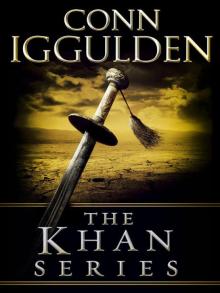 The Khan Series 5-Book Bundle
The Khan Series 5-Book Bundle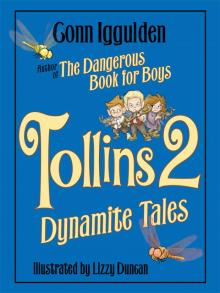 Tollins 2: Dynamite Tales
Tollins 2: Dynamite Tales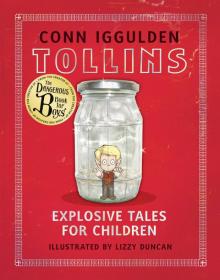 Tollins: Explosive Tales for Children
Tollins: Explosive Tales for Children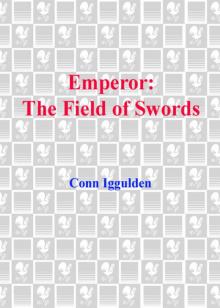 The Field of Swords
The Field of Swords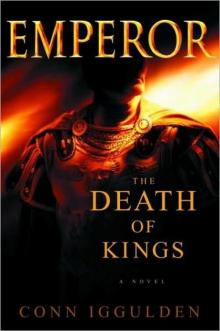 The Death of Kings
The Death of Kings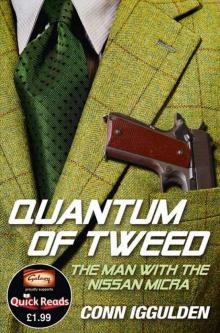 Quantum of Tweed: The Man With the Nissan Micra
Quantum of Tweed: The Man With the Nissan Micra Bones of the Hills
Bones of the Hills Genghis: Birth of an Empire
Genghis: Birth of an Empire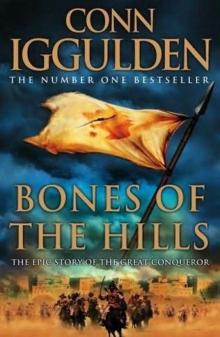 The Gates of Rome
The Gates of Rome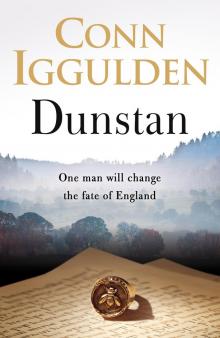 Dunstan
Dunstan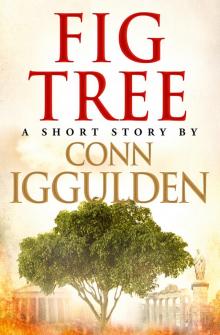 Fig Tree
Fig Tree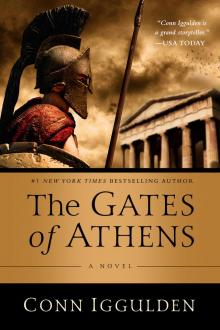 The Gates of Athens
The Gates of Athens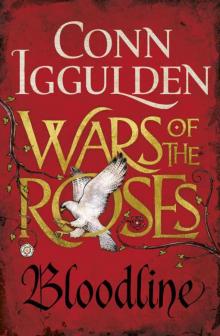 Stormbird
Stormbird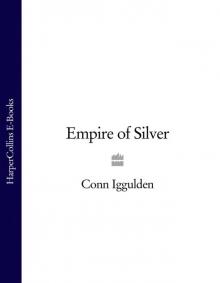 Khan: Empire of Silver
Khan: Empire of Silver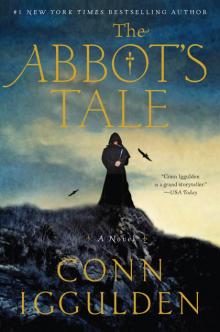 The Abbot's Tale
The Abbot's Tale Gengis: Lords of the Bow
Gengis: Lords of the Bow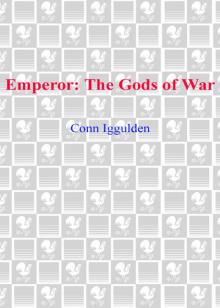 The Gods of War
The Gods of War Blackwater
Blackwater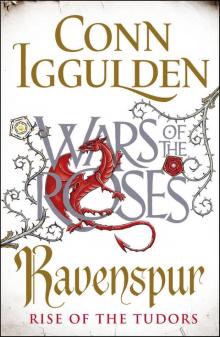 Ravenspur: Rise of the Tudors
Ravenspur: Rise of the Tudors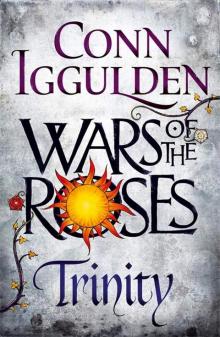 Wars of the Roses: Trinity (War of the Roses Book 2)
Wars of the Roses: Trinity (War of the Roses Book 2) The Gods of war e-4
The Gods of war e-4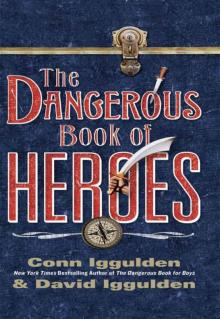 The Dangerous Book of Heroes
The Dangerous Book of Heroes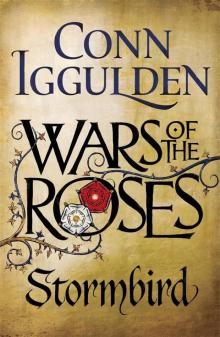 Stormbird wotr-1
Stormbird wotr-1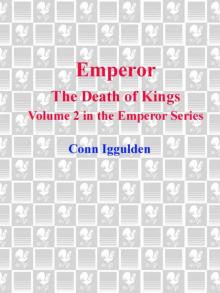 Emperor: The Death of Kings
Emperor: The Death of Kings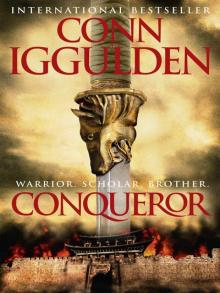 Conqueror (2011) c-5
Conqueror (2011) c-5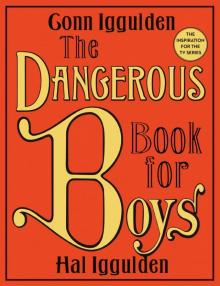 The Dangerous Book for Boys
The Dangerous Book for Boys Genghis Lords of the Bow
Genghis Lords of the Bow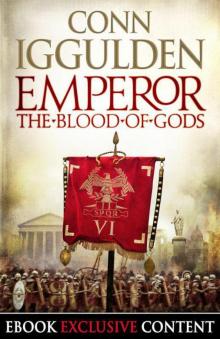 Emperor: The Blood of Gods (Special Edition) (Emperor Series, Book 5)
Emperor: The Blood of Gods (Special Edition) (Emperor Series, Book 5)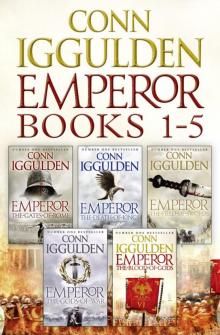 The Emperor Series: Books 1-5
The Emperor Series: Books 1-5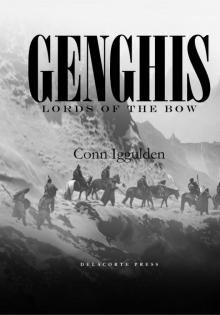 Lords of the Bow c-2
Lords of the Bow c-2 Lords of the Bow
Lords of the Bow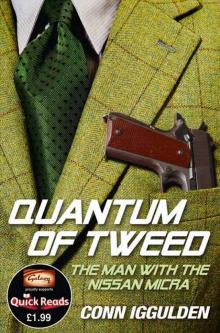 Quantum of Tweed
Quantum of Tweed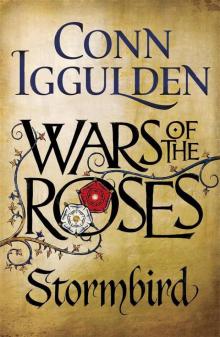 Wars of the Roses 01 - Stormbird
Wars of the Roses 01 - Stormbird Empire of Silver c-4
Empire of Silver c-4 Birth of an Empire
Birth of an Empire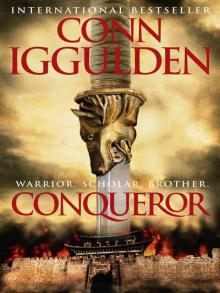 Conqueror (2011)
Conqueror (2011)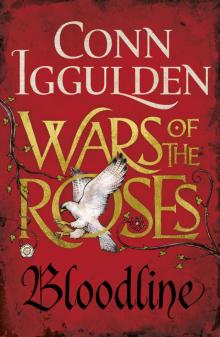 Wars of the Roses: Bloodline: Book 3 (The Wars of the Roses)
Wars of the Roses: Bloodline: Book 3 (The Wars of the Roses) Bones Of the Hills c-3
Bones Of the Hills c-3 Empire of Silver
Empire of Silver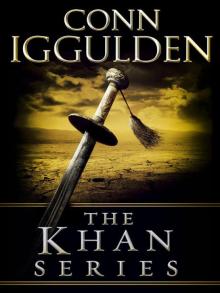 The Khan Series 5-Book Bundle: Genghis: Birth of an Empire, Genghis: Bones of the Hills, Genghis: Lords of the Bow, Khan: Empire of Silver, Conqueror
The Khan Series 5-Book Bundle: Genghis: Birth of an Empire, Genghis: Bones of the Hills, Genghis: Lords of the Bow, Khan: Empire of Silver, Conqueror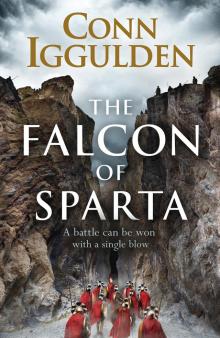 The Falcon of Sparta
The Falcon of Sparta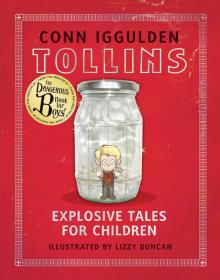 Explosive Tales for Children
Explosive Tales for Children